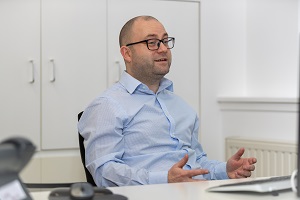I recently read in International Adviser that Debbie Gupta, the FCA’s director of life insurance and financial advice supervision, said at a conference in London that technology systems and tools aren’t a silver bullet for ensuring that clients have good outcomes.
As someone who has spent the best part of two years building a regtech tool that helps advice professionals with platform due diligence (with research and beta testing among a group of brilliant advice professionals being a massive part of that process), this was music to my ears, writes The Lang Cat’s Terry Huddart.
It’s 2020
We’re now five years past where Marty McFly went forward (it was 30 years back – 30 years forward, geek fans).
The hover boards haven’t really happened yet, although the holograms have and paying for a taxi with a thumbprint has, almost.
However, making data do the heavy lifting wherever we can in life is happening in spades, and that MUST apply to our industry.
Technology systems will all have their limitations, but tools should make your life easier by standardising processes and making them quicker and more efficient.
Saving time and, in the long run, money, which benefits clients as ultimately, they always pay.
Take platform due diligence as an example.
I’ve produced products and analysed the sector for the best part of 20 years, man and boy, and comparing it has only ever got more complex.
For one thing, there are a lot more platforms to think about now than there were even 10 years ago, and they all offer different functionality and different pricing models.
Commoditisation hasn’t happened and, believe me (or don’t), there is absolutely zero chance of it happening before you’ll see hover boards in Tesco.
There’s also a lot more regulation to navigate now to ensure suitability for the client.
No bullets of any colour
As the FCA has stated, a platform’s suitability depends on the client’s individual circumstances and requirements and firms must consider if a platform is suitable and meets each client’s needs irrespective of its own strategic requirements.
The watchdog puts the client at the heart of the platform selection, but assessing platform suitability on a client-by-client basis is a very labour-intensive process.
To complete the due diligence process manually takes time.
A lot of time.
Asking each platform to complete questionnaires and collating the responses to create a shortlist can take weeks of work.
As a self-confessed tech nerd, I love getting under the bonnet of a platform to understand how it works and the benefits and disadvantages it may offer advisers.
But I understand that not everyone has the same inner platform geek.
And while it’s my bread and butter, most advisers would probably prefer to spend less time on platform research and more time dealing with clients.
And that’s where technology can, and must, help.
Both to reach more suitable solutions and drive down costs.
They can help advice professionals take out much of the spade work, but their purpose (and this applies very much to platform due diligence) is to help arrive at a defensible shortlist.
And that should go across assessing features, the business as a safe home for the client’s assets, price and a host of subjective factors, because no two advisers’ experience of platforms is the same, for several reasons.
Once that’s done, and a key reason software isn’t a silver bullet, is there is then a more generally gritty element of assessing the shortlist.
For example, system demos, beauty parades and commercial discussions. And never forget, you can’t really know what a platform is like until you’ve spent time running client money on it.
The rain never stops
And it doesn’t end there.
Once a platform panel has been selected, it needs to be regularly reviewed.
The FCA has told advisers more than once in recent years that platform selection is not just a one-and-done choice.
Keeping an eye on market developments and assessing their potential impact is an important part of this process, as is looking across the whole market on an ongoing basis to ensure you’re not missing anything because of familiarity with your current platform selections.
Advisers and providers currently spend millions on due diligence in terms of time and resources, which is frankly ridiculous.
Using technology to streamline the due diligence process and take away some of the pain (and ultimately some of the costs that are passed on to consumers) is, I suspect, how Robert Zemeckis would have done it in a parallel universe where Back to the Future was all about assessing suitable saving and investing venues.
Although tech tools aren’t a silver bullet when it comes to platform due diligence, they have an important role to play. By standardising and expediating the process they can cut costs for advisers and leave them more time to focus on clients – which would surely meet with FCA approval.
This article was written for International Adviser by Terry Huddart, head of proposition at the lang cat.








